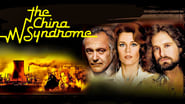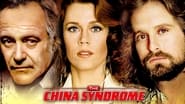oscarsmith-37540
The China syndrome starts with a bang- Jane Fonda and Michael Douglas are at a nuclear power plant when something goes wrong and they manage to capture it on camera. What follows is an investigation into the cover ups that ensues to make sure there is no panic. All the actors are very good here- Douglas and Fonda as the determined young reporters, Jack lemmon as the shift supervisor who unfortunately gets the blame. The pacing is great and the opening scene with the meltdown are genuinely terrifying.
paulkincs
This was when Hollywood still made hard-hitting dramas about important issues with big-time, serious actors. Stellar writing, outstanding dialogue, great acting! Too bad all we get nowadays is a bunch of corporate-approved crap. Where is the drama? Where is the critical commentary on current issues? Guess the current generation just wants their car chases and special effects. Too bad our population lost its balls after the 70's.
eric262003
It was strange coincidence that when "The China Syndrome" was released, a real chemical industrial disaster occurred when the Three Mile Island Incident located in Dauphin County, Pennsylvania happened 12 days after the film was released. The ticket sales skyrocketed at the box office, but the industrial community gave this film a bit of backlash for misconstruing the movie to the real events that happened which resulted in pulling the film out from several theatre outlets. Many viewers though this was another James Bridges character studies of ordinary civilians going about their day-to-day duties crossing a path between going about with their jobs and the questionable situations regarding the ethics that come with their occupations.A film like this one would be hard to craft in today's market of filming, not just about the nuclear power plant situation, but about journalism from a feminist's perspective. The film's main language does consist of overpowering technical jargon that's easy if you have an engineering degree, but incoherent if you don't. We get an in depth look at the power station along with its fuel pellets and damping rods. The nuclear station emphasis mostly on high-tech applications like SCRAM, auxiliary feed valves and the titular China Syndrome which is a thing of great concern but not the radioactive annihilation the movie makes it out to be.In spite of all the paranoia and frightful concerns, Bridges has succeeds in adding little subtleties that make this film all the more satisfying and irresistible to watch. The sound effects are clearly at the top of the line when delivering a story. When the first alarm sounds off, is the perfect call to implement panic towards the characters and the viewers. It's really quite chilling. Then you have supervisor Jack Godell (Jack Lemmon)telling everyone to shut that alarm off but is aware from the start that something is just not right. Then we come to a bit of silence which is subtle and yet very disturbing sort of like we get the blood- curdling sound likely to make you go deaf and then it just stops and replaced by the building's rumblings and workers muttering words that lack in anything but comforting.The scenes Bridges feels more at ease is when he turns his attention to the broadcast studios mainly because Bridges started his career in broadcast journalism where we see the eventual boost in the career towards ambitious reporter Kimberly Wells (Jane Fonda). Fonda is really outstanding in her Oscar nominated performance as a reporter trying to cover more serious news coverage like this one but is sadly held back due to the narcissism of the newsroom and is only looked upon as eye candy. While this is happening, Bridges grills incompetent TV producers through their half-baked news segments and their chronic sexist ways while this heavy-hitting industrial catastrophe falling into becoming more dignified.Bridges makes his film come to life by adding more inventive ways to keep the chill factor alive in his movie without spoon-feeding his audience. The courier gets killed in fatal car crash scene is a nod to the infamous Karen Silkwood story. The exciting scene where Godell outsmarts his mysterious killers is the kind of thing Bridges wants as we watch a jittery person on his way to work while at the same shows his incredible exhibition of demolition driving.The climax of "The China Syndrome" was handled for better and worse is reasserted to archaic values. For example the main one is for the broadcast worker's job to gather as much news coverage as efficient and informative as possible. However, Godell can't give that much because he's only a plant supervisor and Wells is way too inexperienced to be caught up in the middle of the ruckus. Many thrillers before and after this one shows how complicated it is more important to gather information to the general public than hostages, weaponry or relics. And then we get the same routine where the brave but foolish reporter where she maintains her composure and to confidently claim that she knows exactly what she's talking about.At first impression, we don't get very to see except steel and glass, with the exception of browsing over Los Angeles interstate highways. But then Bridges adds the intensity of blinking lights, situation boards, some public relations joker informing the plant technicians that there's a snag and the system that needs urgent attention and we get blurry video footage of monstrous steel masses on the brink of collapsing. To top it all off, the stoic robotic sounds of the teleprinter printing out in step-by-step procedures of a potentially catastrophic disaster.
Scott LeBrun
"The China Syndrome" truly is a landmark film. What helps the most in making it so successful is its "docu-drama" approach, giving it a sense of immediacy that you might not ordinarily get in a Hollywood production. For example, there is no music score on the soundtrack, manipulating us to feel a certain way at specific moments. The story (screenplay credited to Mike Gray, T.S. Cook, and director James Bridges) is compelling enough without additional accompaniment. Also, you also feel as if you're really learning something about the machinations of television news as well as the nuclear power industry. And the film turned out to be awfully prophetic: the real life notorious "Three Mile Island" incident occurred not long after.A small time news station is doing a series of stories on nuclear power, and while they are present at the Ventana power plant, an accident takes place. The powers that be are convinced that nothing serious has happened, but the truth of the matter is far different. There are problems with the plant that only surface after loyal plant executive Jack Godell (Jack Lemmon) is concerned enough to do his own sleuthing. Meanwhile, a TV reporter, Kimberly Wells (Jane Fonda), and a radical camera man, Richard Adams (Michael Douglas), realize that they're really on to something big.Bridges does an expert job at reeling in his viewers, and holding their attention for approximately two hours without injecting his film with unnecessary stylistics. The material is downright fascinating, which helps since Bridges goes for a careful, measured pace. There is action, to be sure, as powerful people do everything they can - like running others off the road, and calling in SWAT teams - to ensure that nothing hurts their business. But at least the ending leaves you with a feeling of hope, that it won't be so easy anymore to cover things up.The cast is impeccable right down the line: Fonda as the beauty who yearns to get out of fluff pieces and do more substantial news, Douglas as the pesky independent operator, and especially Lemmon. Lots of familiar faces supporting them, too: Scott Brady, James Hampton, Peter Donat, Richard Herd, James Karen, Donald Hotton, Lewis Arquette, Rita Taggart, et al. It's particularly nice to see Wilford Brimley, in his first substantial film role, as Godells' co- worker and friend.Definitely catch this one. It's a real gem.10 out of 10.









